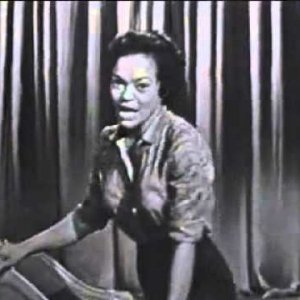Black Laws
Black Laws — What are known as the "Black Laws" in Kansas history were passed by the first territorial legislature in 1855. Holloway (p. 403) says the author of these laws were Joseph C. Anderson, afterward the prosecuting attorney that conducted the cases against the free-state men belonging to Maj. Harvey's command who were captured near Hickory Point in Sept., 1856.
The objects of these laws were to encourage the introduction of slavery into the Territory of Kansas, and to provide severe penalties for the persons who interfered with slave property. Every one inciting an insurrection or rebellion of slaves in the territory, furnishing arms to slaves or committing "any overt act in furtherance of such rebellion or insurrection," or advising by speech, written or printed matter slaves to rebel, or who would bring into the territory for circulation any book, pamphlet or circular for the purpose of inciting insurrection should suffer the death penalty. Persons enticing slaves away from their masters, or who aided in any way in persuading slaves to leave their owners were subject to imprisonment for ten years. Advising a slave to escape or harboring a runaway slave subjected the offender to imprisonment for five years, and there were some lighter penalties for minor offenses, but the above include the principal features of the so-called "Black Laws." Persons opposed to slavery were disqualified from acting as jurors in the trial of those charged with the violation of the laws.
http://skyways.lib.ks.us/genweb/archives/1912/b/black_laws.html

Destee
Black Laws — What are known as the "Black Laws" in Kansas history were passed by the first territorial legislature in 1855. Holloway (p. 403) says the author of these laws were Joseph C. Anderson, afterward the prosecuting attorney that conducted the cases against the free-state men belonging to Maj. Harvey's command who were captured near Hickory Point in Sept., 1856.
The objects of these laws were to encourage the introduction of slavery into the Territory of Kansas, and to provide severe penalties for the persons who interfered with slave property. Every one inciting an insurrection or rebellion of slaves in the territory, furnishing arms to slaves or committing "any overt act in furtherance of such rebellion or insurrection," or advising by speech, written or printed matter slaves to rebel, or who would bring into the territory for circulation any book, pamphlet or circular for the purpose of inciting insurrection should suffer the death penalty. Persons enticing slaves away from their masters, or who aided in any way in persuading slaves to leave their owners were subject to imprisonment for ten years. Advising a slave to escape or harboring a runaway slave subjected the offender to imprisonment for five years, and there were some lighter penalties for minor offenses, but the above include the principal features of the so-called "Black Laws." Persons opposed to slavery were disqualified from acting as jurors in the trial of those charged with the violation of the laws.
http://skyways.lib.ks.us/genweb/archives/1912/b/black_laws.html

Destee





